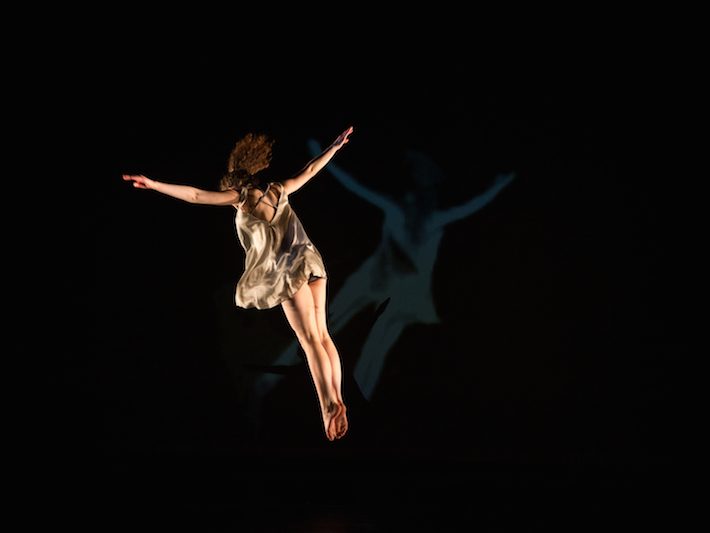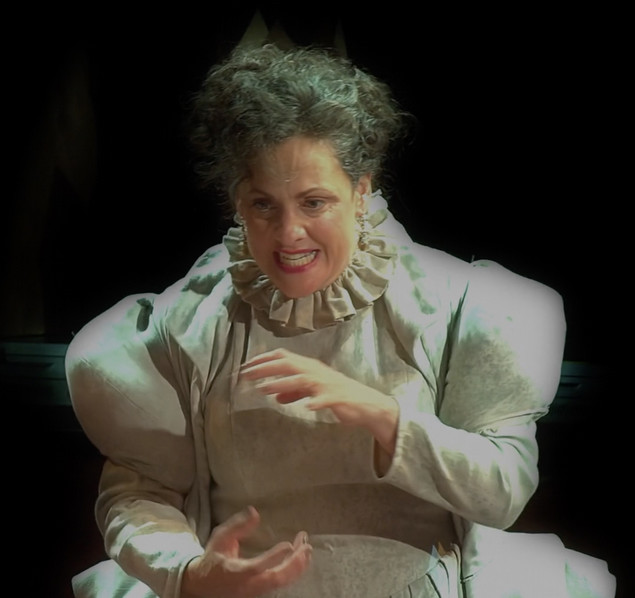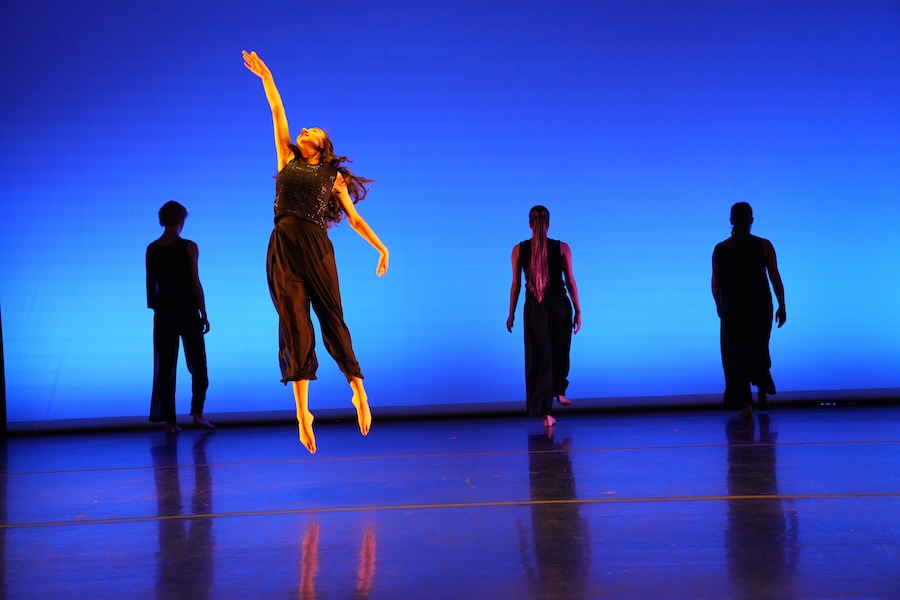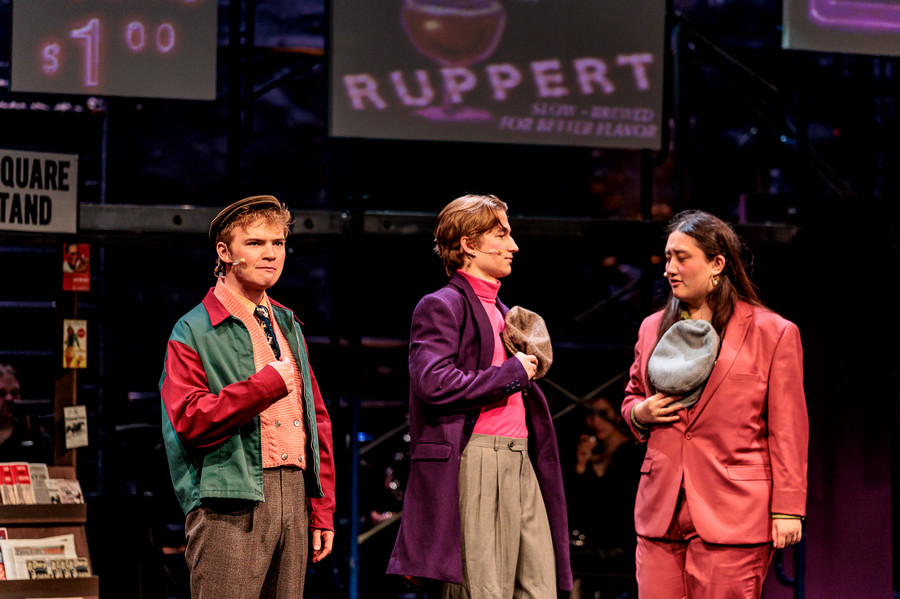Lucia Gagliardone ’20 Leaps into Portland Dance Month
By Rebecca Goldfine

Gagliardone is a dancer, and over the summer she taught community dance classes to people with Parkinson’s disease, to women in a daytime homeless shelter, and to children ages three to ten. She emerged with a new set of ideas about movement.
Her experiences at Urbanity Dance in Boston, where she was an intern supported by a Bowdoin funded internship grant, are influencing an original piece she is choreographing this semester. “I was inspired by the new movement generation I was observing,” Gagliardone said.
She will perform her new duet with Felicity Wang ’20 on Nov. 4 as part of Portland Dance Month, a citywide event with performances of all kinds.
For instance, in her classes with people with Parkinson’s disease, Gagliardone practiced isolating movements—moving just the fingers, wrist, and elbow—and then building up into a full exploration of the whole arm. Her new dance begins with movements evocative of this lesson. And these gestures are not only artful, they are also therapeutic. “There’s lots of research about Parkinson’s and dance, how moving your body with dance unlocks muscular memory and ability in your body in a way that pedestrian and everyday movement cannot,” Gagliardone said.
Gagliardone’s decision to create a duet with Wang also reflects her newfound love of Brazilian zouk, a partner dance she learned this summer. “I found it so thrilling and joyful to engage in this style that is based on improvisation, but also has a set of scripted steps and formations,” she said. “Zouk really relies on the give-and-take of cues. It inspired me to think about connection, and physical connection versus emotional connection. “
Though she is now committed to dance, and is majoring in the performance arts along with sociology, Gagliardone said that after being very focused on ballet for much of her pre-college life, she came to Bowdoin determined to pursue other disciplines. But she said Bowdoin’s dance department made it hard for her to not return to her original passion.
“This department has a lovely pedagogy of inclusivity, and all the classes I’ve taken have had at their center an emphasis on exploring your body’s fullest movement potential rather than pushing your body into a certain ideal or norm of movement,” she said. “Dance has become empowering for me, and I think it has a lot of power in society that is unrecognized right now. It’s a form where the main tool is the body, and which sees the body as valuable and important. That’s really relevant right now in our world.”



